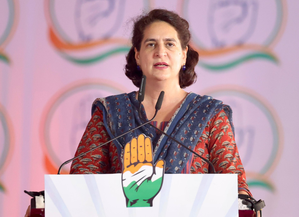Islamabad : The year 2022 has been by far the worst for Pakistan’s economy and business as major driving sectors have been forced into an indefinite recession and crisis, plunging the country into an economic and financial crash.
The sectors that have faced the wrath of the economic recession during the year 2022 include textile industry and its allied sectors, agriculture, import material-based industries and automobiles, triggering a widespread wave of unemployment and job losses in the country.
Pakistan’s currency fell by at least Rs 49.31 against the US dollar and interest rate shot up to at least 16 per cent, the highest since 1998-1999.
Inflation is hovering around 30 to 40 per cent while the Consumer Price Index (CPI) is currently around 25 per cent.
Moreover, the Sensitive Price Index (SPI) during the first five months of the current financial year FY 2023 stands at 28 per cent.
Business community has termed the year 2022 as the worst performing year for Pakistan’s economy.
“Given the circumstances, its high time political parties, before the general elections of 2023, agree upon a ‘Charter of Economy’ for at least 15 years, so that the business community and masses are aware of where we are heading,” said Ahmed Jawad, CEO, Pakistan Business Forum (PBF).
“The year 2023 will be another challenging year for the economy,” he added.
Ahmed Jawad said that Pakistan is a small economy and cannot afford the free floating exchange rate policy.
“We need a bailout to strengthen our rupee which is a key factor in kicking off economic activity in the country. Structural inflation and devaluation pose their own set of challenges for the government. A high policy rate globally is also aggravating the situation,” he said.
Other factors behind 2022 being the worst for business in Pakistan are Covid-19, global conflicts and climate change.
“In the case of Pakistan, complacency, long-standing structural weaknesses and political gridlock have exacerbated the economic crisis,” said Abid Qayyum Sulehri, Executive Director, Sustainable Development Policy Institute (SDPI).
“The good news of 2022 is that, despite the inherent economic vulnerabilities, Pakistan did not default on its external debt commitments. The bad news, however, is that we avoided a default not because of the strength of our economy but due to our debt structure,” Sulehri added.
The way forward, as per economists is to find and maintain subtle balancing act in Pakistan’s relationship with China, to whom it owes at least 30 per cent of its debts, with Saudi Arabia, to whom it owes about 20 per cent of its debts and the US that can help in the rigid and strict terms and conditions of the IMF.
The US can also use its influence to soften the tone and tenor of the IMF towards Pakistan.
“However, this is easier said than done. Maintaining a balance in relationship with these countries is a daunting task,” commented Sulehri.






Related Posts
Yemen’s Houthis claim responsibility for attacks on British oil tanker, US drone
Charges dropped against 57 arrested amid pro-Palestinian student protests
Israel demands release of at least 33 hostages to prevent Rafah attack